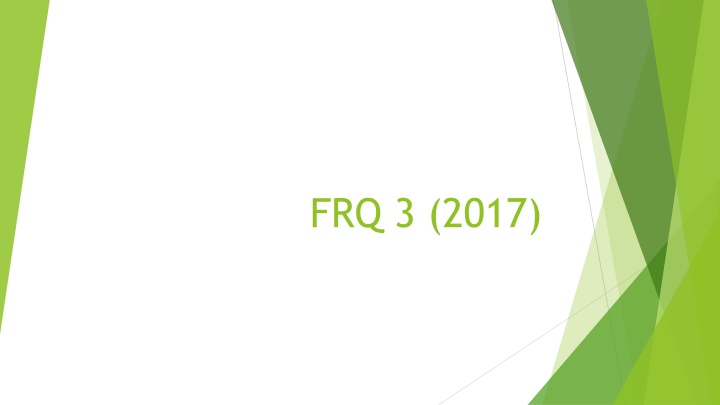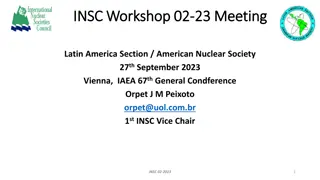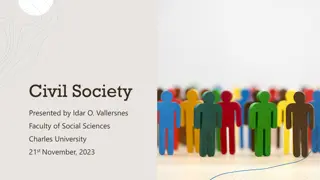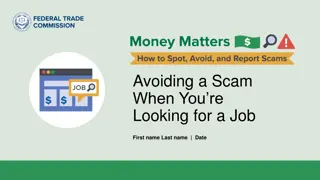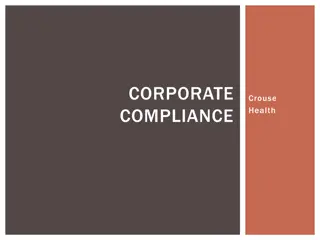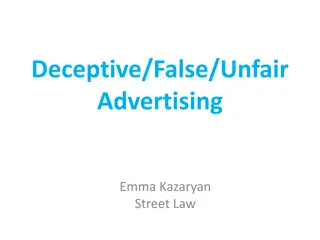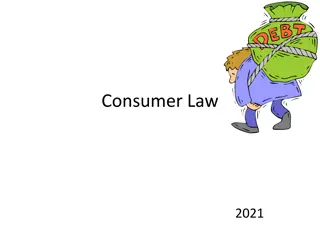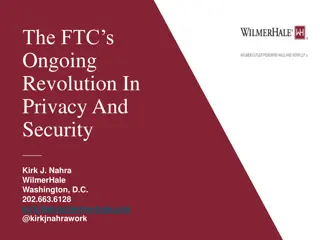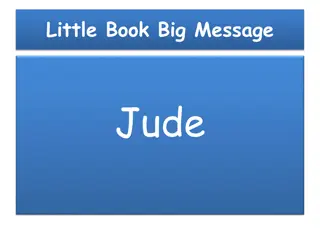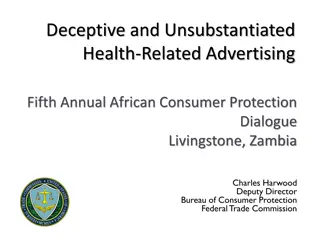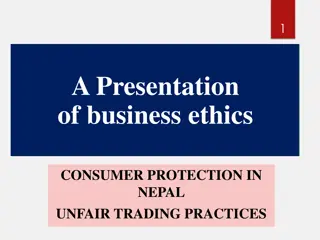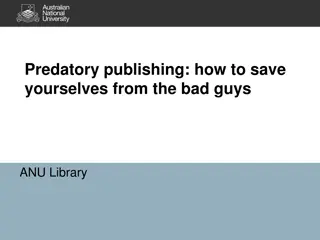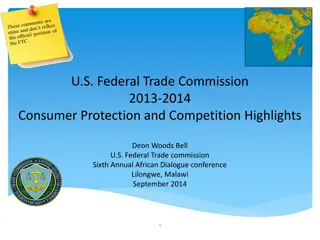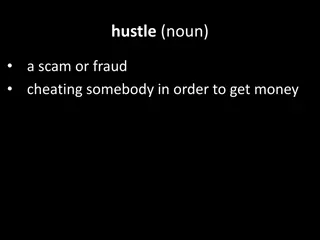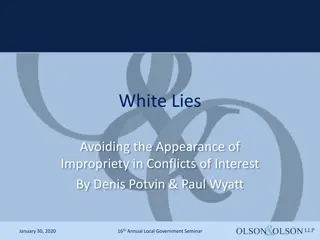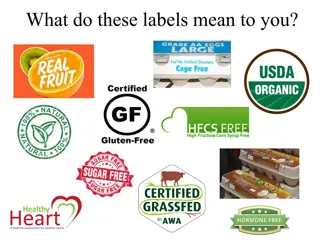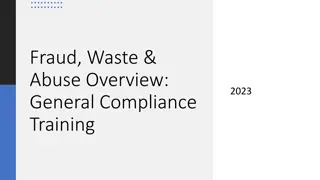Deceptive Practices and Their Impact on Society
Prevalence of artifice and dishonesty in various aspects of life, the detrimental effects it can have on individuals and society, and the importance of taking a strong stance against it. Dive into examples, implications, and strategies to combat this issue effectively.
Download Presentation

Please find below an Image/Link to download the presentation.
The content on the website is provided AS IS for your information and personal use only. It may not be sold, licensed, or shared on other websites without obtaining consent from the author.If you encounter any issues during the download, it is possible that the publisher has removed the file from their server.
You are allowed to download the files provided on this website for personal or commercial use, subject to the condition that they are used lawfully. All files are the property of their respective owners.
The content on the website is provided AS IS for your information and personal use only. It may not be sold, licensed, or shared on other websites without obtaining consent from the author.
E N D
Presentation Transcript
Biggest problem #1- pick a specific position and persuade your reader Lots of essays merely pointing out that artifice and dishonesty exist, without taking a strong stance about it.
Biggest Problem #2- Make a stance which is vague or not effectively related to the topic Not so good: Dishonesty is bad. Here are examples of people being dishonest. Better: The political world encourages and rewards dishonesty in the short term, but eventually destroys the liars it creates. OR Better: The modern communications culture favors hype and image over genuine quality and truth. This leads to people losing touch with what is real and buying into deception, with destructive results.
Problem #3- Vocabulary. Artifice n. clever or cunning devices or expedients, especially as used to trick or deceive others. Fiction is not artifice.
Problem 4- organization Clear stance with clear, organized examples. Problem 5- dude, you gotta finish.
Mass propaganda makes the citizens believe what they are saying when they are not being honest with them. Most of them are irrelevant and tell stories just to make you follow them. For example on tv commercials they tell all the good stuff about the product and have a story about it changed someone's life. Good start, but explain more: what do these commercials fail to mention? How does this incomplete presentation affect the viewer? Also, who are them and they? AVOID VAGUE PRONOUNS
Hedges uses the example of artifice within political theater to create a faux intimacy in which all fall victim to in some way or another. which, not in which. Also: great use of the prompt s own language to add evidence to your positition.
One essential skill is artifice. Its only one essential skill as many don t need it, at least as much as others. Indeed, only appearring to have an honest character can get you far in our world of screens, but only for the beginning. Those who rely on lies and deceipt will never go far. They may take those enviable first steps to be at the front of the leg race, but their body will betray them. Watch spelling Good clear position!
Many teenagers believe that they must show case a fake version of themselves on social media. Teenagers won t put their real selves up to the public for fear of being ignored by others of society. Teenagers turn to what society has taught them to do, and that is to turn to deception. Teenagers think that because other people have great and amazing lifes that if they don t have the same types of lifes they won t be real. The individuals these teens are admiring are influenced by other people to post fake things. Deception is taking over the teenager experience by making them believe that they have to have some fancy car and be popular to be successful. Get to the point: Modern teenagers feel pressure to look good on social media, and will post an artificially attractive, exciting, or wealthy version of their lives in order to keep up with their friends. Ironically, many of the people they are emulating are also creating a fake or exaggerated self for others, creating an endless cycle of deception. BUT ALSO, SO WHAT? Possible ending: Many youths suffer from feeling inadequate, exacerbating low- self esteem, depression and anxiety, for no real reason: their life will never be as fun or as glamorous as those they see online because such lives simply do not exist. OR: This disconnect from reality cripples the teenager s ability to face real life and its real challenges, and makes them prey to those who would exploit them in their vulnerability. Not only is artifice not a valuable skill, it is a disease which disables society.
In politics, a lot of what is currently happening at the southern border of the United States is not seen or it is being dramatized. The current POTUS, Donald Trump, is overdramatizing this situation, saying that those from South and Central America are gang members, rapists, drug dealers, human traffickers and "bad hombres." Though some of that may true, the story has been dramatically altered. People sadly will continue to believe the story they are being told. Hedges says "the reality of the narrative is irrelevant," and that is clearly what is happening. Great, specific, relevant example of political and media artifice. But again, what is the reality being ignored, and what are the consequences of ignoring that reality? ALSO- vague it and that
Chris Hedge's claim in "Empire of Illusion" that deception is more rewarding than honesty is true. His claim is supported by Machiavelli's "The Prince," the peripheral route to persuasion, a psychological technique, and social experiments from YouTube. First of all: FANTASTIC introduction with a great map and solid, specific, and varied evidence. Only problems: title format is wrong. Book titles are italicized, not put in quotation marks. If you are writing by hand, underline book titles. Also, find a synonym for claim to avoid repetition. Also- SUPER IMPORTANT- Spell the author s name correctly.
In an excerpt from "Empire of Illusion" by Chris Hedges the importance of artifice is discussed. The skill of artifice is used in politics and the retail and food industry. Although artifice is used what seems to be not very much, it is an important skill to have. Last sentence is very awkward. BETTER: Although at first glance artifice may not seem to be used much, its value is actually important. Also incorrect format for title.
. . . How many times has a president said they will do something and never followed through? How many times have they denied the truth to keep their reputation or image? Artifice at its finest. When Clinton was in office, he and his wife denied President Clinton of an affair with a young secretary within the oval office of the White House. It was later confirmed, in fact, that Clinton did in fact have sexual relations with the young woman. GREAT example from modern politics of political artifice. However- make sure facts are correct. Clinton s affair was with an intern, not a secretary. Also, Bill Clinton famously lied under oath about his misconduct; it s a matter of some debate whether Hillary knew about the affair and lied. More importantly- you have given great evidence of artifice. So what? What are you proving?
